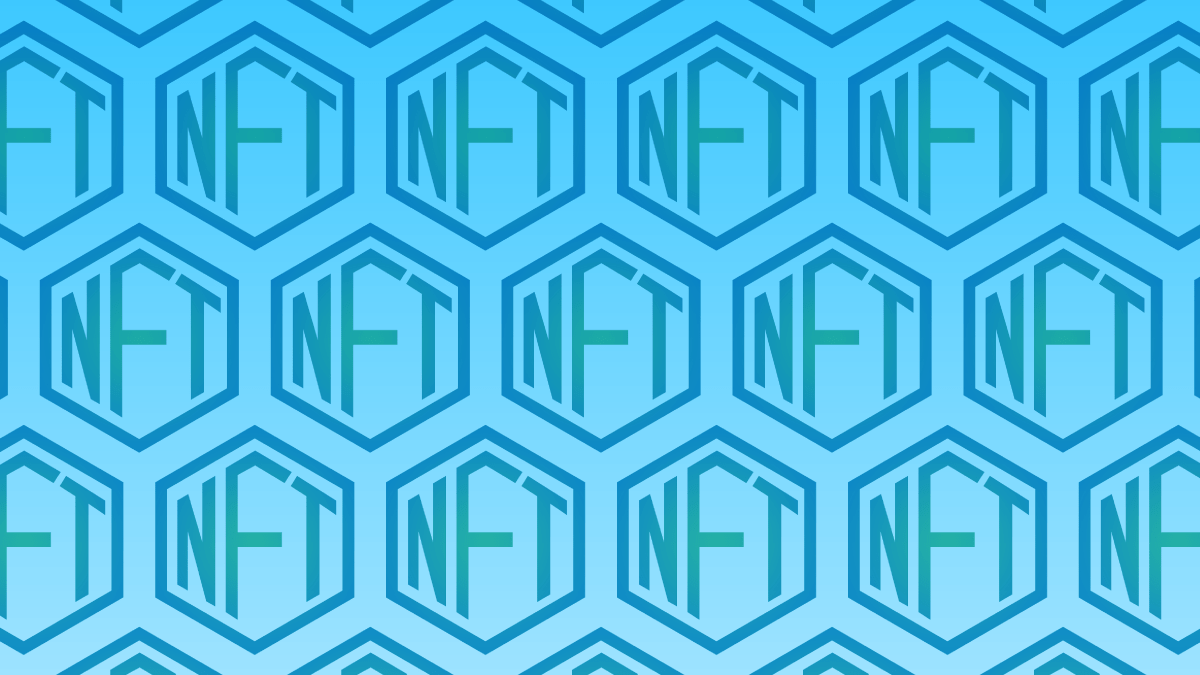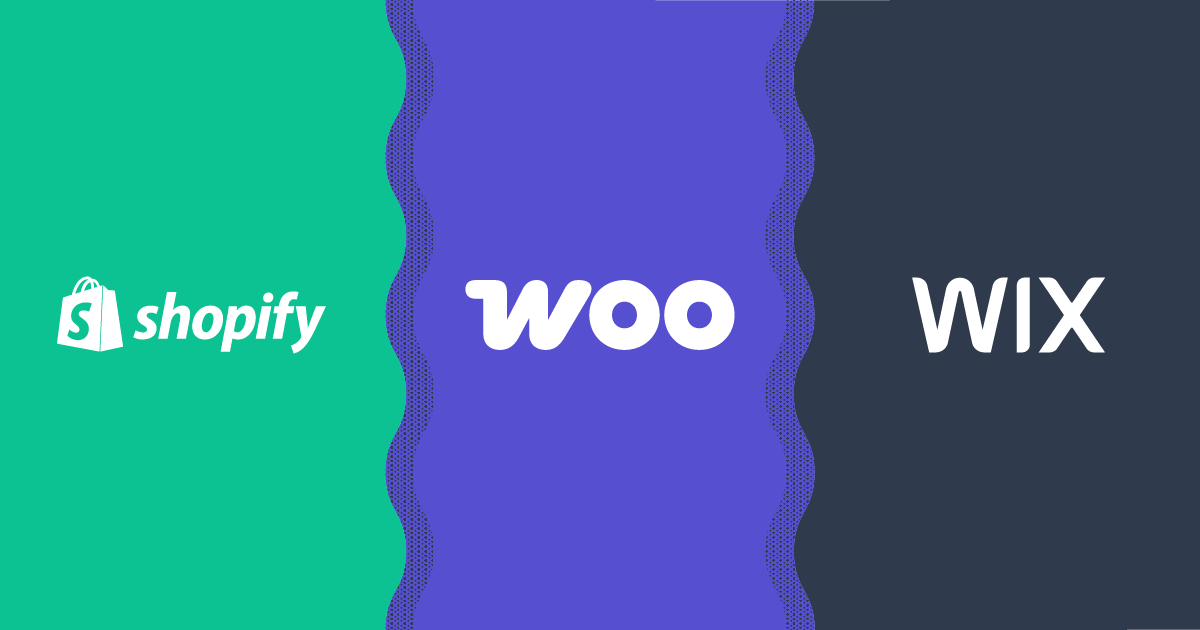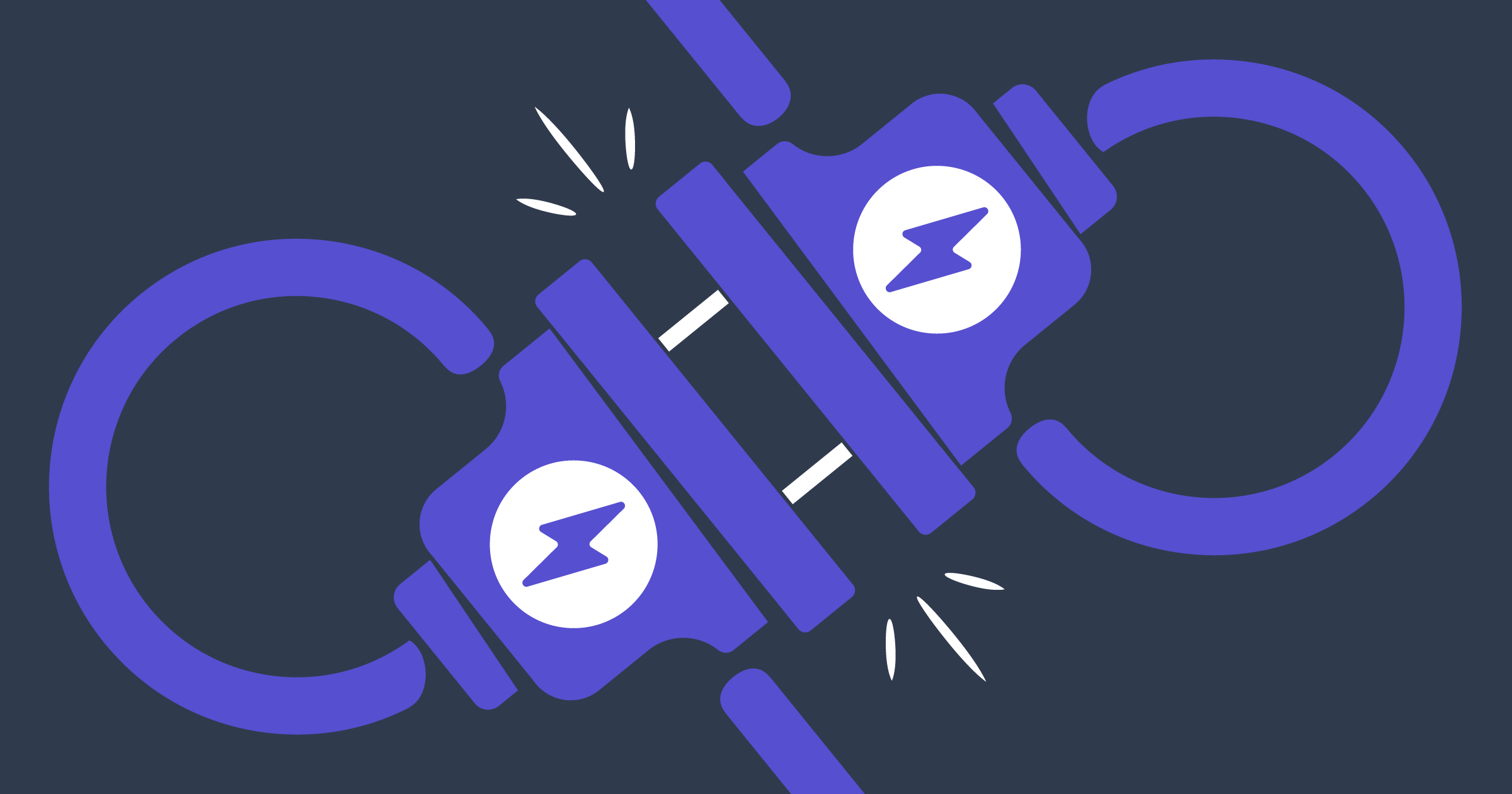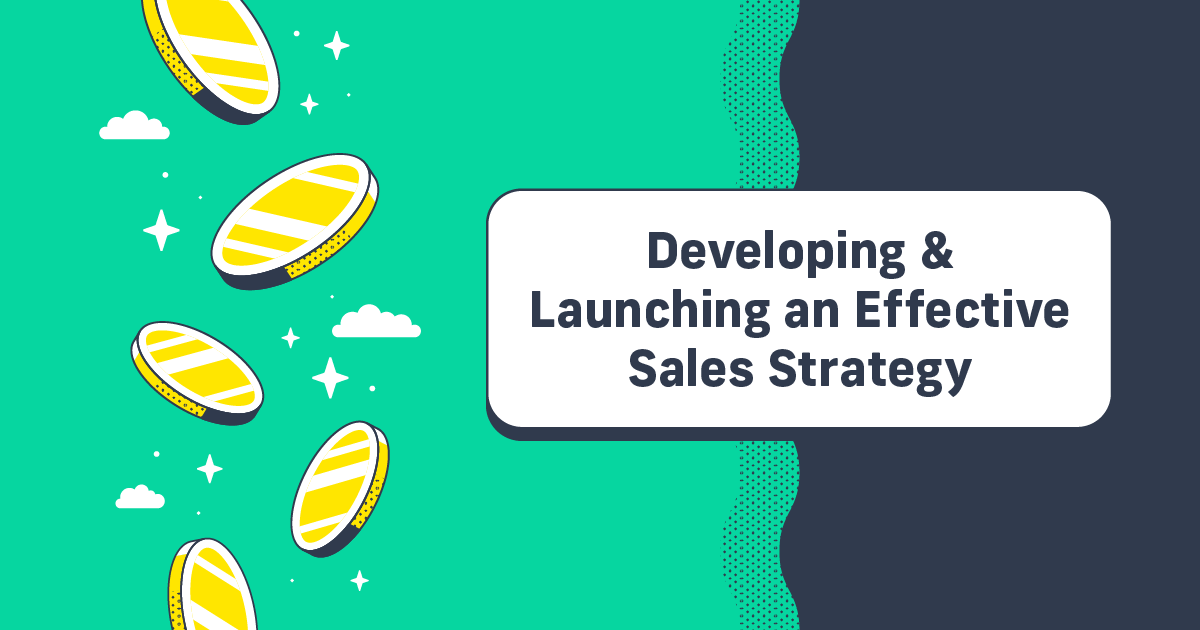Publishing, NFTs, and Your Book
Earlier this year, I was scrolling through my newsfeed and found an article about cryptocurrency and NFTs. Curious—and knowing next to nothing about crypto—I read the whole thing. I got to the end and… well I was still a bit confused.
Since then, I’ve read, watched, and listened to a lot more about NFTs. We even ran a survey on Instagram to see what authors now think about NFTs (keep reading for some results).
I wanted to know how this new digital form of digital ownership—like a title or register of deeds—might impact publishers who make books. On the surface, NFTs seem very applicable for publishers, particularly for ebooks.
What Is an NFT?
NFT stands for a nonfungible token; the NFT represents a single unit of data stored on the blockchain. The data that comprises the NFT acts as a ‘certificate of authenticity’ proving ownership of a digital asset.
One example I found helpful when understanding NFTs is to think of them as the title of your car. The document (your title or NFT) shows that you are the owner of that specific thing (your car or digital asset). To track your ownership of the digital asset, the NFT is stored on the blockchain—giving you the security that your ownership won’t change or be ‘hacked.’
So with this technology, you can ‘own’ digital content in ways that were never possible before. That’s how a piece of digital art sold earlier this year for $69.3 million. Yeah, that’s right, someone paid that much money to own a JPG you can see in the article I linked above. The difference is that the owner can now sell their property to someone else.
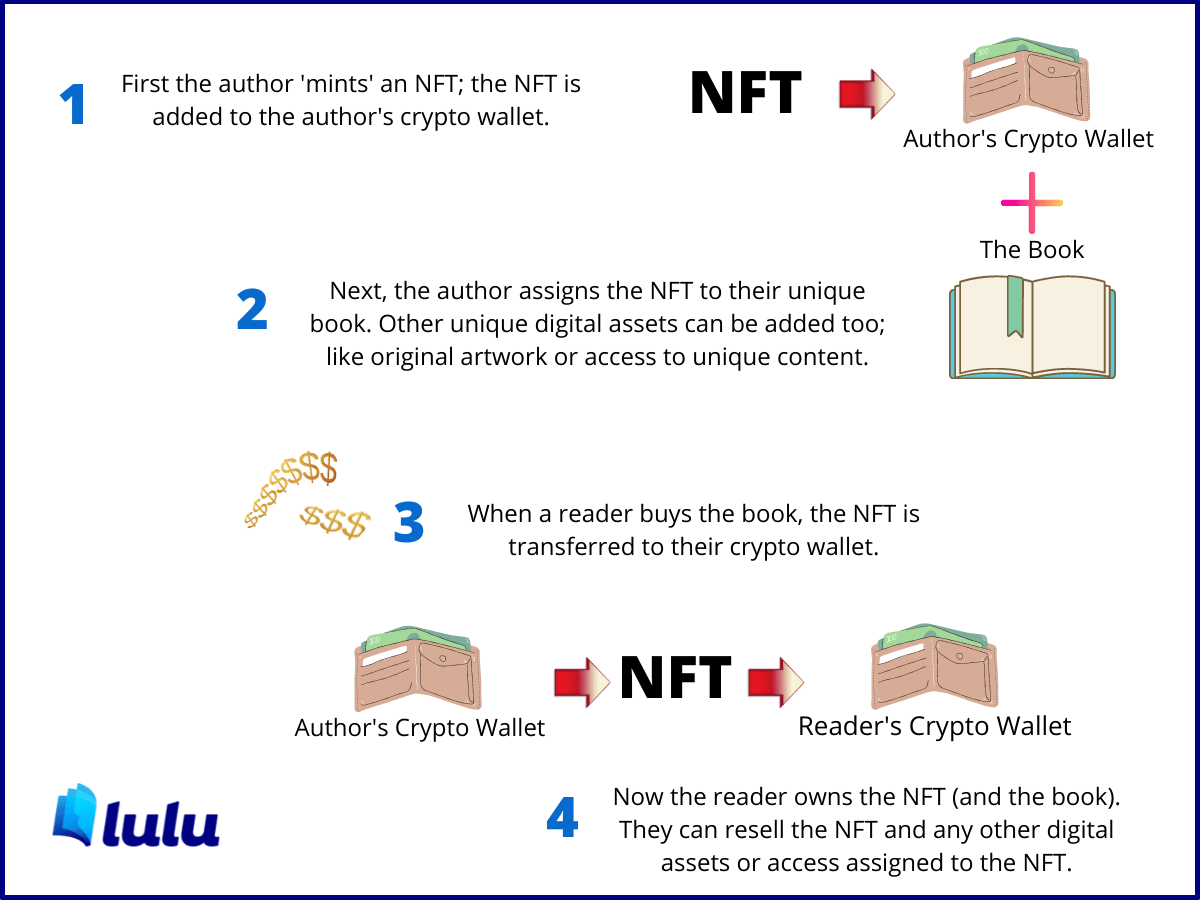
How Might NFTs Impact the Publishing World?
At the moment, they don’t. Not really. But what’s interesting is how they might.
Earlier this year, Publisher’s Weekly posted an article looking at some of the ways NFTs are aiming to impact publishing. The tone is cautionary—many of the things NFTs could do have been tried or already exist for independent authors. For example, authors can already publish on their own with platforms like Lulu. And ebooks are a thing; changing the way they’re bought and sold has happened—think about ebooks before and after Kindle.
That doesn’t mean we shouldn’t take NFTs seriously. Joanna Penn recently interviewed author and blogger John Fox on this topic. He cautiously said, “I think a lot of people are going to use it as a gimmick, but I think that fundamentally, it’s not a gimmick.” Later in the interview he explains the immediate benefit of NFTs (“possibilities for additional sales channels”) but thinks the real benefit is in future applications:
“…every time a book gets sold every time a digital file of a book gets sold, the original writer could get 10%, or 20%, or 30% of that sale.”
NFT systems today focus on digital art and other assets that can be clearly defined as unique. Applying this to an ebook is challenging for a variety of reasons. But as Fox and Penn conclude; NFTs offer some unique and expansive opportunities for authors.

Create Your Book
Use Lulu's free templates to easily create and publish your book today.
Looking to the Future
In case you didn’t know, everyone here at Lulu loves technology. We think and act a lot more like a SaaS company than a publisher (most of the time). So it’s natural that we’ve started looking into how NFTs might help you be more successful.
After a quick survey on our Instagram, we found a handful of Lulu authors who were already thinking about ways NFTs could help them sell more books or make their books more interesting to readers. Perhaps most interesting were the results from this question:
Do You Think NFTs Will Be Useful for Authors?
Here’s how the responses broke down:
- Definitely – 8.3%
- Maybe – 11.1%
- No – 47.2%
- What is an NFT? – 33.3%
The majority of users either don’t think NFTs will be useful for authors or don’t know what an NFT is. All indications are that digital markers and accounting (whether in the form of NFTs or something else) will be vital in the way we buy and sell digital goods in the future. What this poll tells us is that authors aren’t aware of the current and future applications NFTs present for all kinds of content creators.
So we’re experimenting; searching for unique ways NFTs might impact the publishing world.
NFTs hold a lot of potential for the future. But let’s pause on looking into that crystal ball and instead focus on today. Currently, there are only two real applications for NFTs in publishing; proof of ownership and resale with residual revenue.
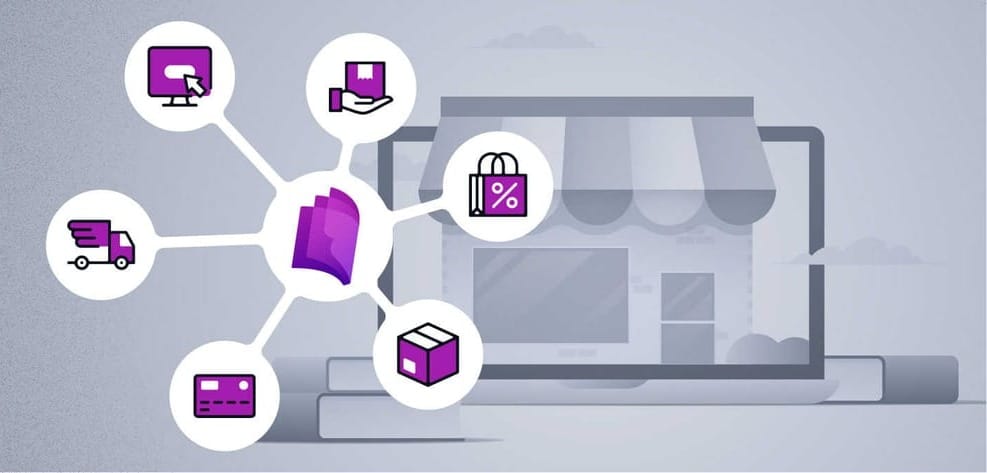
Sell Your Book, Your Way
Sell books on your Wix, Shopify, or WooCommerce website with Lulu Direct.
Or use our Order Import tool for your next book launch.
Owning a Digital Book
While reading up on NFTs, I came across an argument that buying an ebook from Amazon didn’t actually confer ownership. The idea goes that, if Amazon were to dissolve tomorrow, your Kindle would be drained of all the ebooks you’ve bought. After reading some of Amazon’s Terms & Conditions, it seems your access to content bought and stored on the Kindle is at Amazon’s discretion.
But the fear of losing your digital library is contingent on 1) Amazon vanishing with no warning and 2) no plan in place to support existing purchases if Amazon did go under. Similar to the way books are loaned using Libby by Overdrive expire and leave your device, Amazon could pull back all the content you’ve ‘bought’ because you’ve really only paid them for access to that content.
If the ebook you buy includes an NFT you would own that ebook. Period. No company would have a right to reclaim or remove the file from your device. Because you would have the blockchain entry showing your ownership of that specific piece of content.
The application here is sort of impractical. Sure, you own that ebook. But it’s just a bit of HTML coding. The copyright holder could easily reproduce the file and sell it again. And again and again. Without the gatekeepers watching over access to the file, your NFT wouldn’t mean much.
But (and this is a big BUT) what if you created a unique version of your ebook? Just like a signed copy or first edition of a printed book has added value, an ebook could realize that same kind of scarcity. Which could, over time, lead to a secondary market for unique ebooks.
Much of the current conversation about NFTs and books is looking at these kinds of ownership opportunities for writers and creators. This brings us to my second way to utilize NFTs for publishing: resale.

Your Free Lulu Account
Create a Lulu Account today to print and publish your book for readers all around the world
Reselling a Digital Book
Okay, so let’s say you bought the NFT for the newest novel by your favorite author. This ebook has a unique cover image and a special foreword by the author. There are only 1,000 of this edition and you own one. Let’s say it costs you $20. Pretty cool, right?
Now imagine years pass. The author remains popular, but you’ve moved on to other stories. Then this beloved author publishes a new book that blows up. Suddenly, those backlist books are in demand. First-run copies of old books by this author are suddenly valuable.
And now so too is your digital edition. Thanks to that NFT verifying that you own it and that the ebook is real. And since the demand is up thanks to the author’s budding popularity, your unique—NFT verified—ebook is worth $100. You can sell it and make yourself a nice profit (probably to be used to buy more books, am I right?).
It’s also notable in the above scenario that NFTs offer the potential for the author to get paid when you resell their book. NFTs are an immutable ledger of all sales for that digital asset. The author who originally minted the NFT could include a ‘smart contract’ that would maintain a revenue share for the author of ALL sales of that specific NFT.
That scenario is only possible with the digital tracking that NFTs offer. It’s also an improbable scenario at the moment. No marketplace exists to easily resell that NFT ebook you have. Demand for ebooks with unique elements may not exist either.
Selling books with NFTs is a whole new world of publishing technology. But it’s not like reselling ebooks hasn’t been talked about or experimented with already. NFTs could open up a world of more unique ebook designs with a robust resale market. Or it could fizzle out next year when some other cool technology rises to the top.
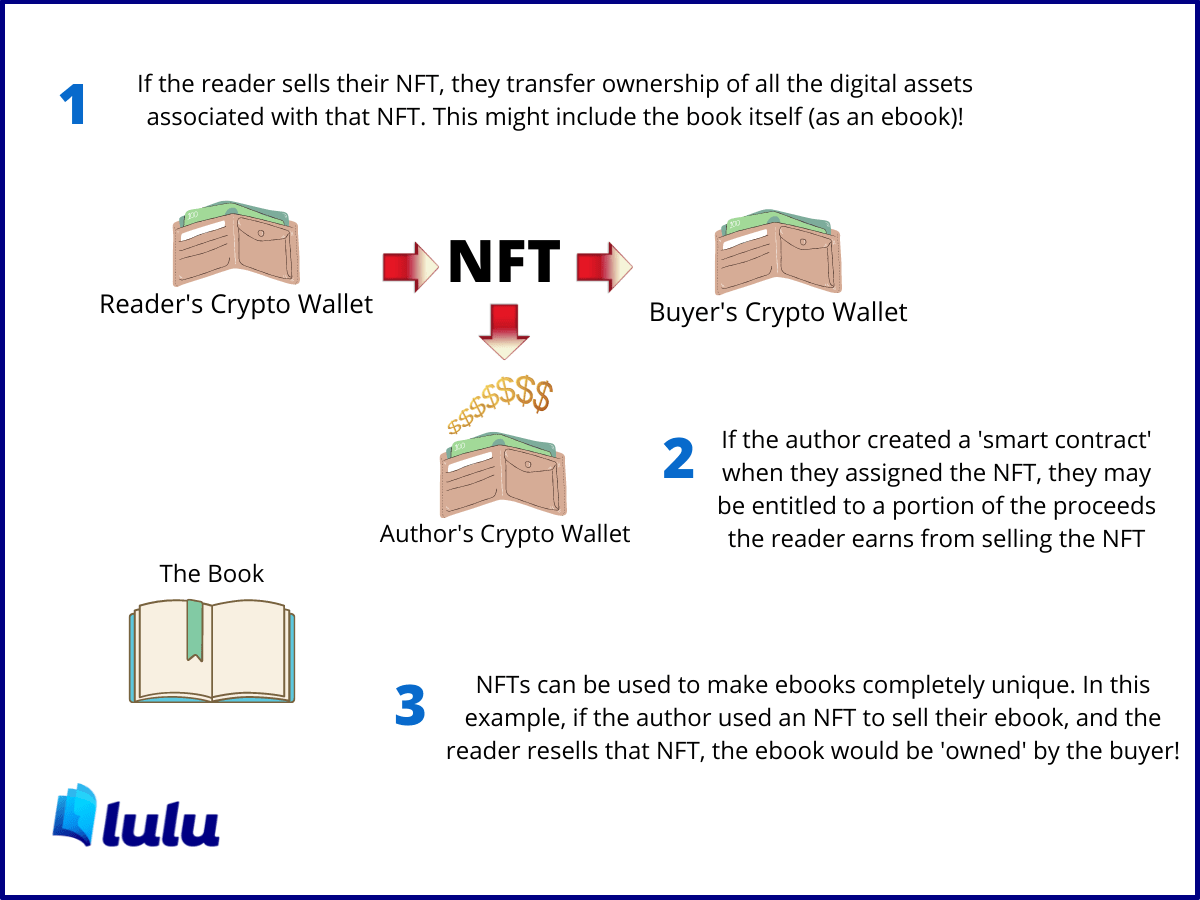
What Do NFTs Mean for Authors?
At this point, NFTs are worth keeping an eye on. If you’re a tech-savvy author, you might experiment with minting your book as an NFT. As I mentioned earlier, some Lulu authors are already testing the waters to see just what NFTs may hold for authors and bookmakers.
In the long term, digital signatures for all kinds of digital art will become the norm. As an independent author, you’ll need to stay up to date on the ways technology impacts how you create, publish, and sell your work.
Because innovations aren’t going to stop. NFTs at the moment seem to have very limited application for authors. But that could change. A resale marketplace could emerge. Unique methods of engaging with ebooks (imagine a VR audiobook!) could be developed.
Or nonfungible tokens might become commonplace for other things you sell to accompany the book. Like a video or image or an early draft of the story.
Perhaps NFTs will impact authors through a subscription-style model—selling serialized content on a limited basis has a lot of potential, if the audience exists.
Or—last wild idea, promise—what if you sold a print book with an NFT? A QR code or URL might lead the buyer to a site to claim their NFT, conferring…something. Maybe an ebook version or digital companion to the book.
This is all to say; that the potential for NFTs is vast. The underlying technology isn’t likely going anywhere, but the application for authors is uncertain. Yes, minting NFTs for your book might be a good way to account for sales and open up the door to reselling with residual income for you. But the logistics aren’t in place to make this easy enough for a wider audience to utilize.
I am confident that NFTs, blockchain, or some similar forms of digital accounting will impact how ebooks are bought and sold. The potential is too vast and dependent on too many variables to make a call right now; but if you’re an author and you’re interested in digital books, NFTs are certainly the most important new technology to watch.

